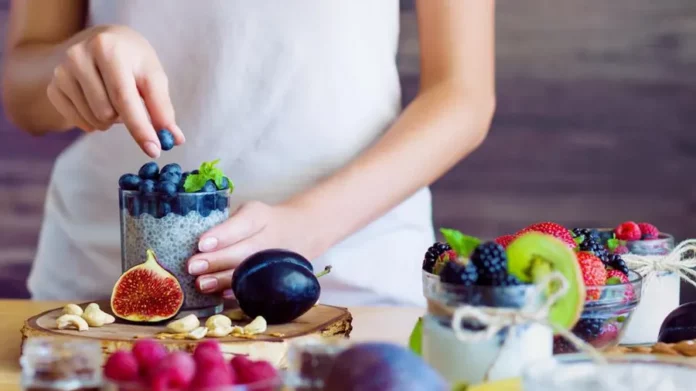The gut is often referred to as the second brain. It’s directly connected to the human brain via the vagus nerve, and it has a number of essential functions.
Of course, the gut is vital for digestion. It breaks down ingested food, absorbs nutrients, and eliminates waste. However, it also has several less obvious functions, including a role in immunity, vitamin production, and mood regulation.
Because the gut performs so many important roles in the body, you can experience many health problems if your gut isn’t as healthy as it should be. Gut dysbiosis refers to when your gut bugs are imbalanced, which can result from poor diet, stress, and antibiotic use, among other things.
If your gut is dysregulated, you might experience bloating, constipation, abdominal cramps, skin issues, poor immune function, and low mood. Luckily, there are things that you can do to heal your gut and reduce these symptoms.
6 Top Ways to Heal Your Gut
Here are some great things that you can do to heal your gut and restore microbial balance.
1. Remove sugary, processed foods from your diet
Certain foods can wreak havoc on your gut health, even some traditionally healthy foods. If you’re experiencing the symptoms of poor gut health, you may need to make dietary adjustments to heal your gut.
Although everybody responds differently to certain foods, there are some ingredients that are known to be harmful to the gut. The worst foods for your gut health include sugar, processed foods that are high in fat and salt, dairy, and red meat. Those that are sensitive to gluten may experience a host of gut symptoms when they consume gluten-containing products.
Eliminating these foods and ingredients from your diet could help to heal your gut and relieve any nasty symptoms.
2. Eat more gut-friendly foods
At the same time as removing the above foods from your diet, you should also try to include more gut-friendly foods.
Generally, foods and drinks that are rich in antioxidants and anti-inflammatory compounds will be great for your gut. Similarly, fermented foods are superb for balancing your gut microbes and promoting a healthy digestive tract.
Some of the best foods and drinks for your gut include:
- Yogurt
- Tofu and tempeh
- Onion
- Garlic
- Sauerkraut
- Ginger
- Turmeric
- Green tea
For lots of gut-friendly recipes that contain the above ingredients (and more), visit Thor’s Fork.
3. Consume probiotics
Probiotics are live bacteria that can improve your gut health by increasing the number of beneficial species and eliminating potentially harmful bacteria. Although probiotic bacteria are in your gut, you can improve your digestion naturally by consuming probiotic foods and supplements.
Probiotic foods include yogurt, tofu, kefir, and sauerkraut. If you purchase a probiotic supplement, ensure it is from a reliable company with third-party testing.
4. Reduce your stress levels
Psychological stress can negatively impact your gut health, partly due to the close connection between the brain and gut and partly due to the systemic inflammation that occurs with chronic stress.
Stress can also disrupt the natural balance of microbes in your gut, leading to bloating, gas, cramps, and constipation. Incorporating stress-reducing activities into your daily routine, such as yoga, meditation, and gentle exercise, will help to lower your stress and heal your gut.
5. Incorporate more fiber-rich foods into your diet
Fiber is essential for great gut health. It helps to regulate bowel movements and promote the growth of beneficial gut bacteria. Increasing your fiber intake is, therefore, a great way to heal your gut and manage chronic digestive disorders.
Fiber-rich foods include fruits, vegetables, whole grains, beans, and legumes. Try to eat a variety of these foods for maximum health benefits.
6. Stay hydrated
Dehydration is one of the most common causes of gut health issues, particularly constipation and bloating. By drinking enough water each day, you can keep things moving in your digestive tract to prevent constipation, cramps, and excess gas. Aim to drink around eight glasses of water a day, and even more if you are particularly active or it’s a hot, humid day.
If you consume diuretic drinks, such as those that contain caffeine and alcohol, make sure to replace any lost fluids by drinking more water. If you’re really struggling with your gut health and you’re experiencing severe digestive symptoms, it’s best to avoid caffeine and alcohol altogether. You may be able to reintroduce them when you have identified the root cause of your gut health issues.


